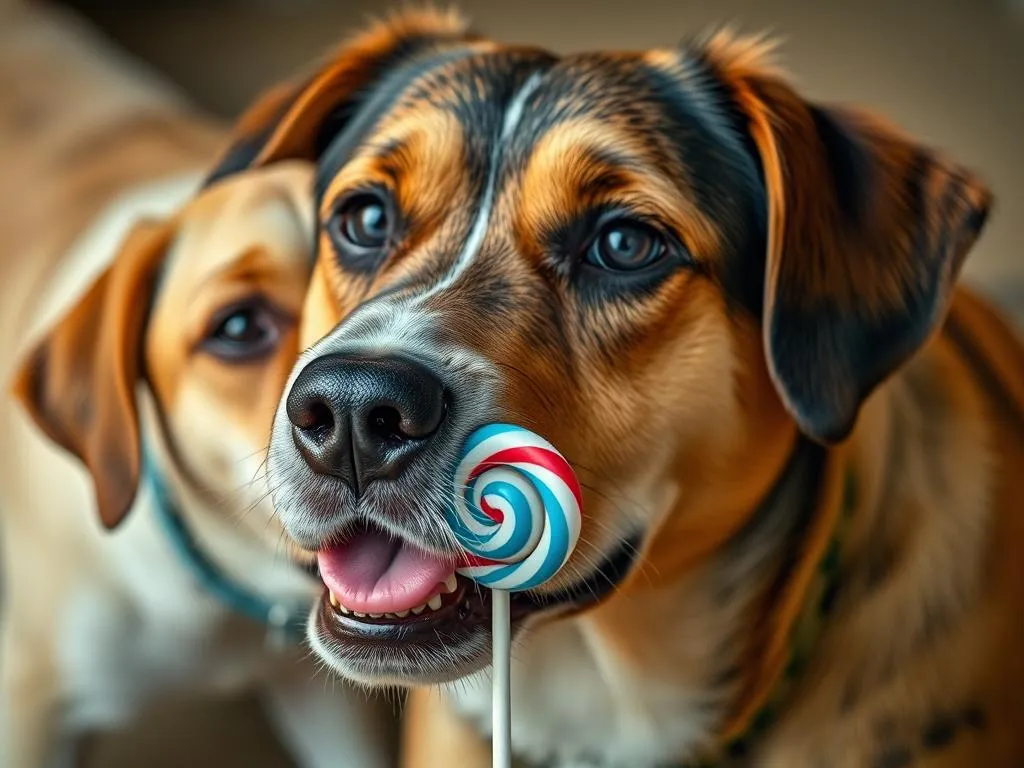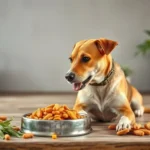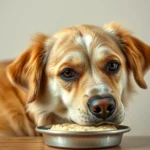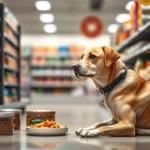
Understanding proper dog nutrition is crucial for maintaining your furry friend’s health and well-being. While many pet owners love to share their food with their dogs, not all human foods are safe for canine consumption. One common question that arises is, can dogs eat lollipops? This sweet treat, often enjoyed by humans, can pose potential risks to our pets. It’s essential to explore dog dietary needs and the possible hazards associated with giving dogs human treats, particularly lollipops.
Understanding Dog Nutrition
Basic Nutritional Needs of Dogs
Dogs are omnivores, meaning they require a balanced diet that includes a mix of proteins, fats, and carbohydrates.
- Proteins: Vital for growth, repair, and overall health. Good sources include lean meats, fish, and eggs.
- Fats: Provide energy and help absorb certain vitamins. Healthy fats can be found in fish oil, chicken fat, and flaxseed oil.
- Carbohydrates: Offer energy and are found in grains and vegetables. They should be included in moderation.
In addition to macronutrients, dogs need a variety of essential vitamins and minerals to support their immune system, maintain healthy skin, and ensure proper bone development. A balanced diet tailored to a dog’s age, size, and breed is crucial for their overall health.
Common Dog Food Ingredients
When selecting dog food, it’s important to recognize both safe and beneficial ingredients as well as harmful ones.
Safe and Beneficial Ingredients:
– Chicken, beef, and fish: High-quality protein sources.
– Carrots, peas, and sweet potatoes: Provide fiber and essential vitamins.
– Rice and oats: Good sources of carbohydrates.
Harmful Ingredients to Avoid:
– Chocolate: Contains theobromine, toxic to dogs.
– Onions and garlic: Can damage red blood cells.
– Grapes and raisins: Known to cause kidney failure.
The Role of Treats in a Dog’s Diet
Treats can play a valuable role in a dog’s diet, serving various purposes such as training rewards, dental health, and simply showing love. However, it’s crucial to choose the right types of treats.
Recommended Types of Treats:
– Natural treats: Like freeze-dried meats or fish.
– Homemade treats: Made with dog-safe ingredients.
– Store-bought options: Look for ones labeled as healthy or organic.
Treats should not make up more than 10% of a dog’s daily caloric intake to ensure they maintain a balanced diet.
Analyzing Lollipops: Ingredients and Risks
Ingredients Typically Found in Lollipops
Lollipops, while a delightful treat for humans, contain several ingredients that can be harmful to dogs.
- Sugar: High sugar content can lead to obesity and dental problems in dogs.
- Artificial Sweeteners: Many lollipops contain xylitol, which is highly toxic to dogs and can cause a rapid insulin release, leading to hypoglycemia.
- Coloring Agents and Flavorings: Some of these additives can cause allergic reactions or gastrointestinal upset in sensitive dogs.
Health Risks Associated with Dogs Eating Lollipops
While it might seem harmless to give your dog a lollipop, several health risks are associated with this sugary treat.
- Gastrointestinal Upset: Consuming lollipops can lead to vomiting or diarrhea due to the high sugar content and artificial additives.
- Tooth Decay and Obesity: The sugar in lollipops can contribute to plaque and tartar buildup, leading to dental issues. Additionally, excessive sugar intake can lead to obesity and related health problems.
- Allergic Reactions: Some dogs may have sensitivities to specific ingredients found in lollipops, leading to rashes, itching, or gastrointestinal distress.
Symptoms of Toxicity or Illness
If a dog accidentally ingests a lollipop, it’s essential to monitor for symptoms of toxicity or illness, which may include:
- Vomiting
- Diarrhea
- Lethargy
- Excessive thirst or urination
- Loss of appetite
If you notice any of these symptoms, especially after your dog has consumed a lollipop, it’s advisable to contact your veterinarian for guidance.
Alternatives to Lollipops for Dogs
Safe Treat Options
Instead of lollipops, consider offering your dog safer treat alternatives that are both tasty and nutritious.
- Commercial Dog Treats: Look for options specifically formulated for dogs with natural and wholesome ingredients.
- Homemade Treats: Consider making your own treats using dog-friendly ingredients. For example, peanut butter and oat biscuits are usually a hit among dogs.
Simple Recipe for Peanut Butter and Oat Treats:
– 1 cup of rolled oats
– 1/2 cup of peanut butter (ensure it’s xylitol-free)
– 1/4 cup of water
Mix all ingredients, roll into balls, and bake at 350°F (175°C) for about 15 minutes.
Natural Sweet Alternatives
If your dog has a sweet tooth, there are several fruits that are safe and healthy to offer as alternatives to lollipops.
- Apple Slices: Remove the seeds and core before giving these to your dog.
- Blueberries: A great source of antioxidants and a low-calorie treat.
- Banana Slices: In moderation, bananas can provide a sweet treat without the risks associated with lollipops.
Incorporating these fruits into your dog’s diet can satisfy their cravings without the health concerns associated with sugary treats.
Owner Responsibility in Dog Nutrition
Educating Yourself on Dog Foods
As a responsible pet owner, it’s vital to educate yourself about dog foods and their ingredients. Understanding what goes into your dog’s food can help you make informed choices and avoid harmful ingredients.
- Read Labels: Familiarize yourself with dog food labels and what the ingredients mean.
- Research: Utilize resources like books, reputable websites, and articles focused on canine nutrition.
Creating a Balanced Diet for Your Dog
Formulating a balanced diet that meets your dog’s specific needs is essential for their health. Consider the following tips:
- Consult a Veterinarian: Work with your vet to develop a diet plan tailored to your dog’s age, size, and health conditions.
- Portion Control: Ensure that you are feeding the right portion sizes to prevent obesity and other health issues.
Managing Treats and Human Food
When it comes to offering treats or human food, set clear boundaries to ensure your dog’s diet remains healthy.
- Guidelines for Treats: Limit treats to no more than 10% of your dog’s daily caloric intake.
- Healthy Snacks: Choose dog-safe fruits or vegetables as snacks instead of sugary human treats.
By managing how and what you feed your dog, you can help maintain their health and prevent potential dietary-related issues.
Conclusion
In summary, while it can be tempting to share sweets like lollipops with our furry companions, the question remains: can dogs eat lollipops? The answer is a resounding no. The risks associated with sugar, artificial sweeteners, and other harmful ingredients far outweigh any momentary pleasure a lollipop might bring.
By prioritizing your dog’s health and well-being, you can make informed dietary choices that promote their overall happiness. Understanding dog nutrition, recognizing safe treat options, and maintaining a balanced diet will ensure that your furry friend stays healthy and vibrant for years to come.









